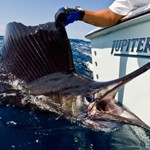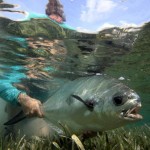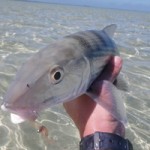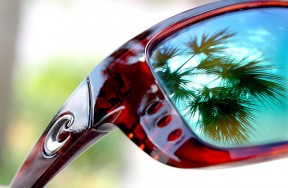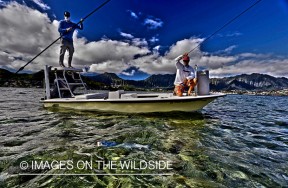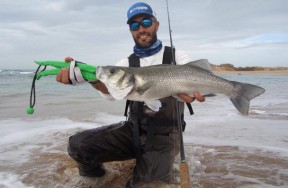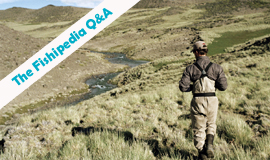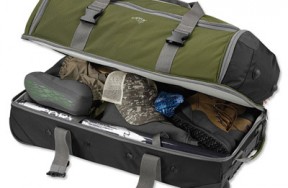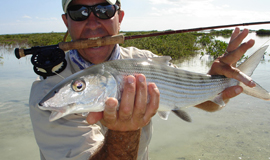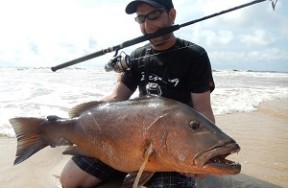Fishipedia Top 5: Ways to improve your fish-spotting ability
A handful of hints and tricks to help you develop the vision of an osprey…
Get the right sunglasses
On a recent trip to the Keys, my guide and I were chewing the fat during one of those extended periods of inactivity that go hand in hand with permit fishing. I think I was asking him how hard it is to stay motivated day after day, when he reminded me that he spends his days off fishing. However, he did reveal that the day before, his two clients had turned up with no sunglasses. None. And not because they’d forgotten them. Now I was under the impression that everyone, and particularly people who’ve just dropped $500 plus on a day’s fishing, knew that a pair of high-quality polarised sunglasses should be the first thing in your bag. Apparently not.
But it doesn’t end there – you should also think carefully about the glasses you’re wearing. I appreciate that we can’t all have a different pair for every conceivable light condition, but you should consider having a couple of varieties in your bag, and whatever you buy should be of good quality with an anti-reflective coating. If you’re looking for fish at dawn, and you’re trying to pick out tails glinting and flashing in the early morning sun, try to leave them off right up until the moment you start casting. Darker lenses in particular kill off glare, thereby snuffing out those tell-tale flashes you’re on the hunt for. Also, consider an amber-tinted lens for low light conditions and overcast days – they’ll give you that all-important contrast needed for spotting fish without turning the lights off.
For brighter days, a darker lens (anything from a deep copper to a grey) will help you cut the necessary glare and allow you pick out the shapes you need.
 Be on the lookout for shady characters
Be on the lookout for shady characters
Fact: the shadow a fish casts is much easier to spot than the fish itself. If you spend your time attempting to zero in on the fish themselves, you’re only making life harder for yourself. Take bonefish for example – sure, they’re not invisible, but their mirrored scales are designed to reflect and mimic the environment around them. Unfortunately this doesn’t prevent them from casting a shadow, and it’s up to you to use this to your advantage.
Trust your instinct
The only time fish are motionless is when they’re dead. The rest of the time, they are always moving, heading from area to another in search of food. So if you think you see something moving, stop moving and focus on it. The skill of spotting fish, whether you’re on the flats or a mountain stream, can certainly be learned and refined over time, but your instinct is crucial and you must trust it.
 Get a bird’s eye view
Get a bird’s eye view
It almost goes without saying, but any time you can put yourself in an elevated position, you’re going to see way more. After all, there’s a reason that guides stand on poling platforms. OK, so if you’re out on the flats on your own, it’s going to be hard to find any altitude (they’re not called “flats” for nothing) but it’s worth remembering when you’re fishing in rivers and lakes – whenever possible, get up high and give yourself an osprey’s-eye view.
Leave your rod behind
This might just be the hardest one on the list, but if you can bring yourself to do it, it’ll pay dividends in the long run. The next time you head out on the water, try leaving your rod behind. The point is, sometimes we get so wrapped up in all the other details of fishing, that we don’t spend enough time simply watching fish and their behaviour. And I mean really watching them, not just watching whether they take your fly or lure or whatever. What we’re talking about here is studying their behaviour, how they move, when they move, why they move, the shadows they cast, colours and contrast, the areas they congregate in, the routes they use to get on and off flats, or the pools and riffles they drop in and out of on rivers. There’s a lot going on in there – only, sometimes, we just can’t, or don’t, see it happening.
Rory Batho
>> Something you want to add to our list? Let us know in the comments below…

